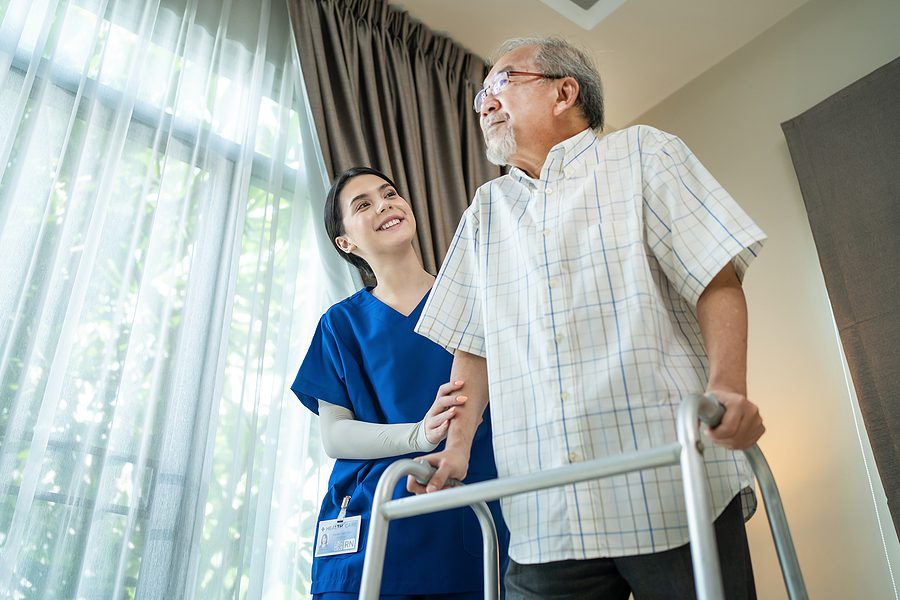After your elderly or disabled loved one goes to the hospital, it can be important to prepare for their transition back home. If your loved one is recovering from surgery, injury, or illness, creating a transition plan can be vital. This article will discuss how to prepare for their recovery when transitioning home from the hospital.
Working With The Hospital When Transitioning Home
Many hospitals have discharge planners. These are professionals that will give you a breakdown of how your loved one’s recovery should go, and what to prepare for. This can include planning for follow-up appointments and ordering assistive devices including a walker, hospital bed, or wheelchair. Changes to diet and lifestyle may be needed. If you are unable to provide the daily care or supervision that your loved one will need, you may need to consider hiring help at home.
Changes to the Home
Depending on the needs of your loved one, changes to the home may be needed. This could include grab bars and a shower chair in the bathroom, chair lifts, etc. If your loved one’s home is multiple floors, you may have to rearrange to reduce the number of times they travel floors.
Transitioning Home and Nutrition
Proper nutrition is important to the recovery process. Additionally, recovery medications may require specific changes in the diet. Some medications require less or more of certain nutrients to work best. Instructions from the hospital can help you prepare your loved one for a more nutritious diet.
Hiring Professional Home Care
Hiring a home health aide or in-home nurse can be an important step in the recovery process. Preparing your loved one for changes in care and lifestyle can be difficult when you have your own career and family. In-home care services can include tasks such as
- Assisting with walking and transferring from bed to wheelchair
- Bathing, dressing, and grooming assistance
- Medication reminders
- Assitance with doctors appointments
- Toileting and incontinence care
- Status reporting to family
- Safety and fall prevention
- And more
Professional home care can be important during recovery stages, but can also be helpful in the long-term thereafter. Work with your loved one’s aide to determine whether long-term care is right for them. SafeHarbor Home Healthcare Services provides quality care in-home for the elderly and disabled. Overall, we work with families to help meet the needs of your loved one.
Safe Harbor Healthcare Services does not provide medical, healthcare, or financial advice via articles. This material has been prepared for informational purposes only. It is not intended to provide, and should not be relied on for medical advice.
Safe Harbor Healthcare Services has been providing excellent home care on Staten Island since 1967. Our services help the elderly and disabled live safely and independently; while giving their families the peace of mind they need. For more information contact us by clicking here, or call (718)-979-6900.

